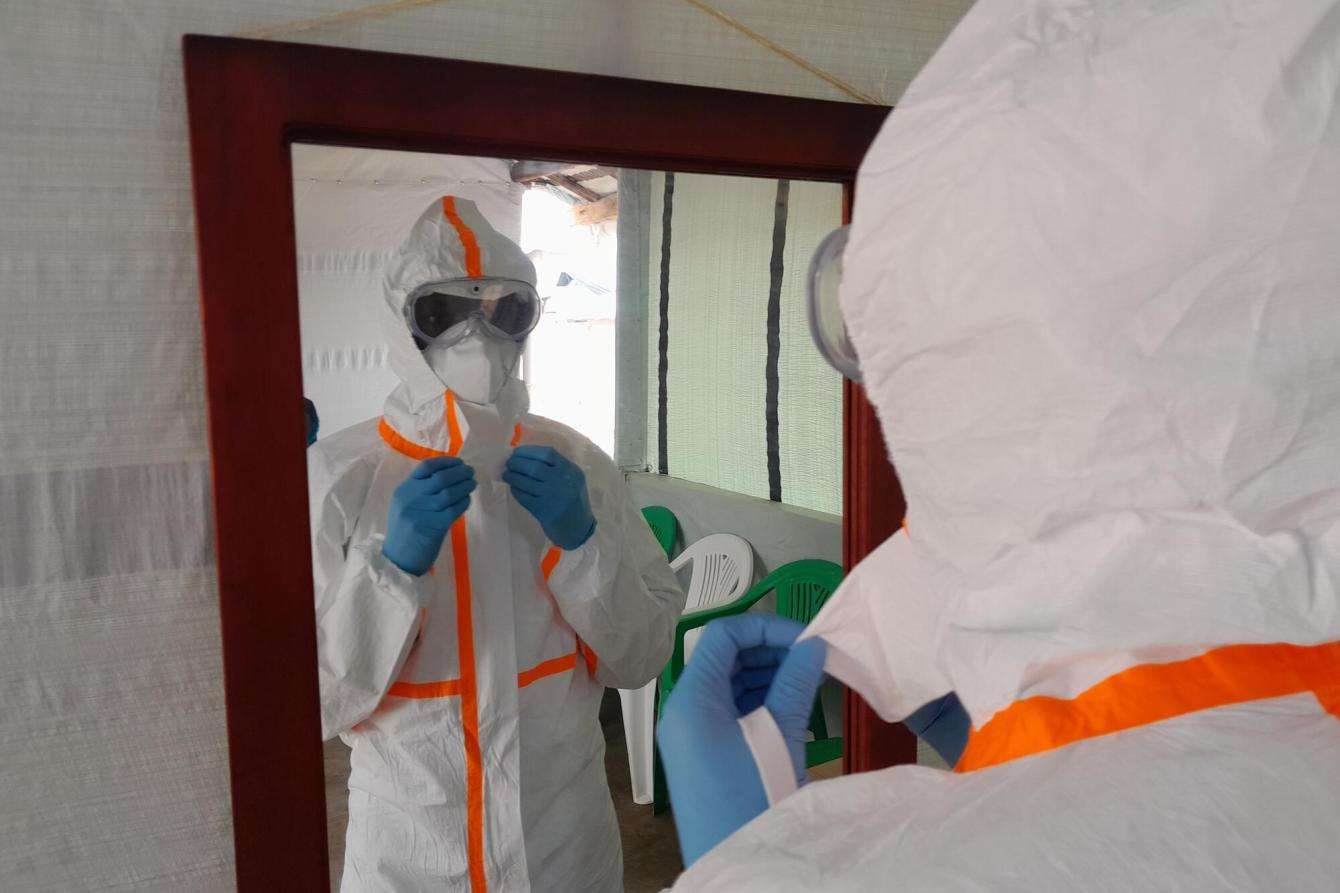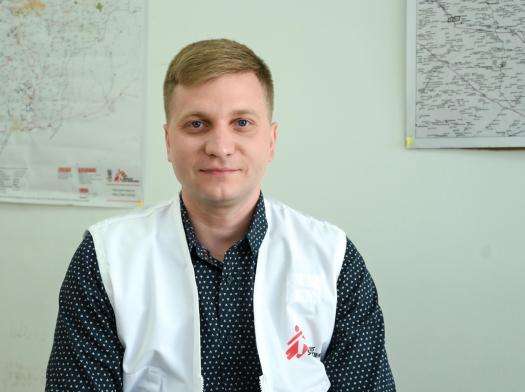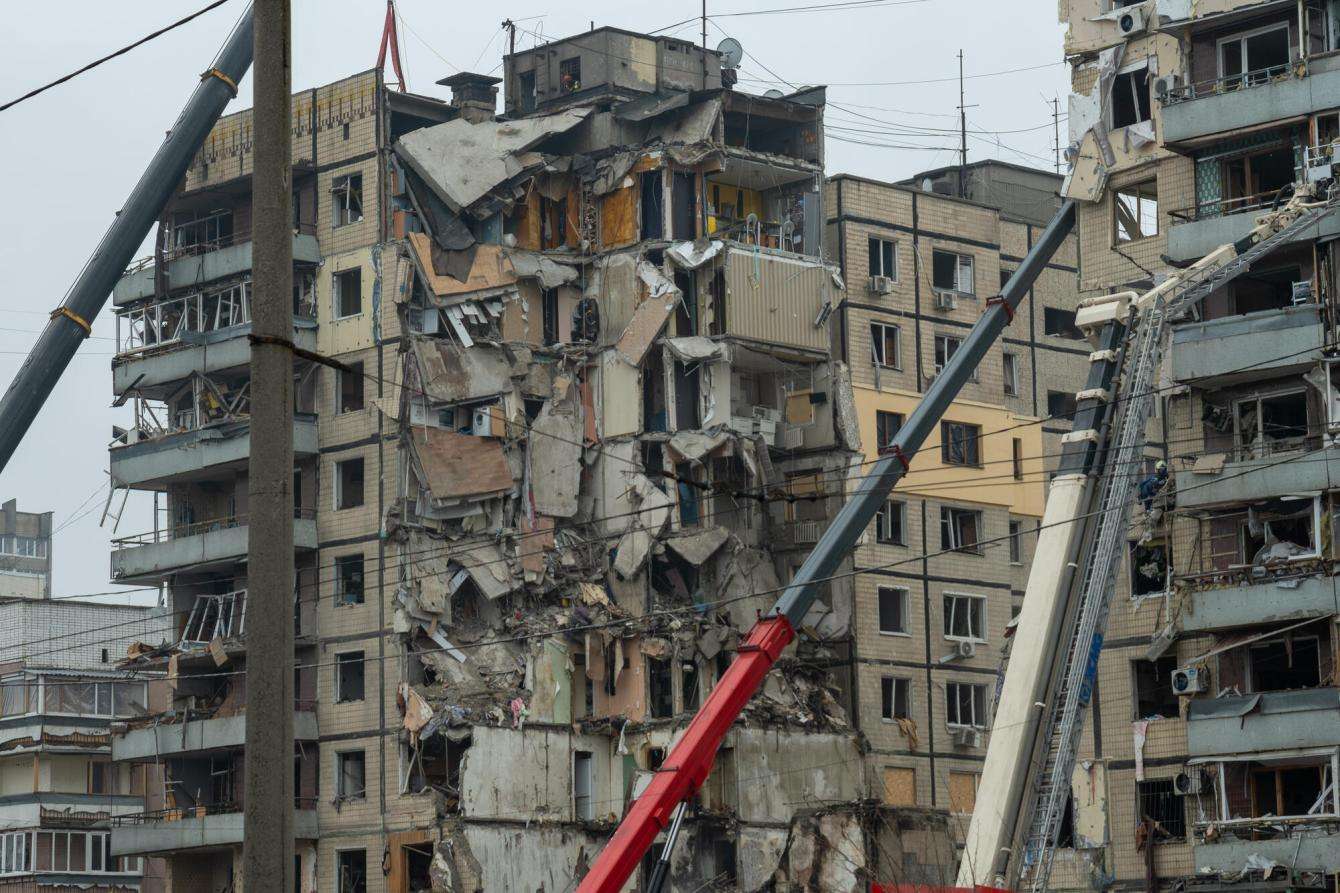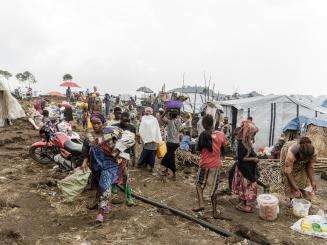Providing lifesaving care, valuable insights, and deep empathy for patients
More than 80 percent of Doctors Without Borders/Médecins Sans Frontières (MSF) staff members are locally hired and come from the communities they serve. Nearly half of our medical humanitarian projects in 2022 provided care to people displaced from home, either within their own countries or across borders. This means that many MSF staff members have themselves experienced displacement—often more than once. This means they are uniquely equipped to understand and tend to the needs of people forced from home. Here, MSF staff who have been displaced share their stories and explain how these experiences inform their lifesaving work.
Pellemali Gius Bertrand
Pellemali Gius Bertrand. 2023 © MSF
Pellemali Gius Bertrand, age 37, was a nurse in Venezuela before leaving due to the economic crisis seven years ago. Today, she lives with her two children in Brazil, where she works as a patient support supervisor with MSF.
“I came to Brazil because a friend lived here,” she said. “It was very difficult when I arrived. Being alone with a three-year-old child was not easy at all. I was out of my comfort zone and had left everything behind, including my profession. After being a nurse back home, it was a big shock for me to have to start working in a restaurant to make ends meet.”
Pellemali currently lives in Boa Vista, a city in Roraima, Brazil, with her two children. She started working for MSF as a health promoter and then became a patient support supervisor, where she uses her language skills, nursing background, and personal experience with displacement to serve MSF patients.
“My job is to link patients to the Brazilian public health system, to get them into the network,” she said. “When the patient needs secondary care, or a more complex level of care, they come to me so they can be referred to a place where they can get the care they need.”
Every day, Pellemali traverses the city to secure appointments for MSF patients, consultations with specialists, and to schedule laboratory tests. She also helps people who come from Pacaraima, a nearby town at the border with Venezuela, assisting them with transportation, shelter, and if necessary, psychosocial support.
In addition to her own experience being displaced, Pellemali is the daughter of parents who had themselves migrated from their home country of Haiti. “My own experiences give me a closer and more sensitive understanding of what migrants are going through,” she said. “It allows me to help in a more empathic way because I can understand what they have already lived and what they will probably face ahead. Leaving a place is never what you expect. Things don't happen the way you want them to. There are many stones along the way, but with perseverance you can overcome them and get farther than you think.”
Bonnet Kamate Kihugo

© MSF
Bonnet Kamate Kihugo is a seasoned logistician with nearly 20 years of experience working for MSF in South Sudan, Cameroon, Niger, and in several places within Uganda. He has always been ready to answer MSF’s calls for help. “My job is to coordinate between the specialists—from construction workers to water engineers to IT technicians,” he said. “I'm the spider in the center of the web, you could say.”
Originally from Democratic Republic of Congo (DRC), Bonnet fled to Uganda as a refugee in 1999. Most of his family still lives in DRC, but he doesn’t feel safe to visit them. One of his most recent assignments took place in Kisoro, in southwestern Uganda, on the border shared with both DRC and Rwanda.
“It’s where many Congolese refugees cross into Uganda, so we started a hospital there,” he said. “I feel so sad when I see how refugees are treated, because I can really relate to them. I've been in their situation, and I think you can understand in a different way than people who haven't gone through the same thing. That's why it means a lot to me to be able to support people who are fleeing.”
Bonnet has built a life for himself in Uganda, where he is married with five children. “I have many good memories from my childhood in North Kivu [DRC]. At that time, it was calm there. But after the genocide in Rwanda, many people fled to DRC and the situation became very tense. Before, I had always felt safe in my home country, but all of a sudden, the fighting was taking place around us. It was the first time I saw people being killed; it was horrible. I realized I wasn't safe anymore.”
When the rare Sudan strain of Ebola began spreading in Uganda in late 2022, Bonnet eagerly joined the project as a logistics manager.

Bonnet’s dedication to supporting others in need remains unwavering. His family, despite missing him when he is away on assignment, is proud of his work. He hopes to inspire his children to follow in his footsteps. In his downtime between assignments, he enjoys tending to his chickens and farming his land.
“I really like the atmosphere within MSF,” he said. “Although we’re professional staff, it's a true volunteer spirit. You give your whole self to something and it feels so good. I want to continue to give people the help that I never received myself.”
Dr. Alexander Shcholokov

2022 © Pau Miranda/MSF
Alexander (Sasha) Shcholokov is a doctor from Donetsk, Ukraine. Forced to leave his home due to the escalation of war in February 2022, Sasha and his family embarked on a perilous journey, ultimately settling in Dnipro.
“We had been asleep at home in Mariupol when the bombing began. Immediately we knew that we had to leave,” Sasha recounted. “But to find refuge where? We had no idea.”
Sasha joined tens of thousands of other Ukrainians attempting to escape the violence. “I remember being blocked at a bridge and hearing planes flying over the line of cars,” he said. “My son was almost two years old, and not really speaking yet, but at that moment he made sounds of incomprehension and fear. I tried to reassure him, but I knew that my family had to leave the country. Later, we learned that on February 28, a bomb had fallen exactly on our flat, destroying everything.”
Sasha and his family made it to the Hungarian border. After his family crossed into safety, Sasha returned to Lviv, where he found out that MSF had already evacuated its teams. From there, he went to Dnipro, a town in southeastern Ukraine with a large number of displaced families that had fled the violence further east.

“I was offered a job managing MSF’s medical teams there and accepted immediately,” he said. “I lived in Dnipro back in 2014, at the beginning of the conflict, but when we arrived this time, it was not like I remembered. The streets were empty, like a semi-abandoned city. We began by meeting the local authorities and assessing what was needed, particularly in the health facilities. Within a few days, we started training the hospital teams from the Ministry of Health.”
MSF teams quickly mobilized to conduct training sessions for hospital staff to equip them with the necessary skills to handle a large influx of war-wounded patients. Additionally, MSF prepared for potential bombings by training hospital staff on how to relocate their patients and medical activities to facilities’ basements.
Alongside their work in hospitals, the team established mobile clinics in the region, offering general health consultations to new arrivals in reception centers and shelters. The mobile clinics also provided psychological support to people who had experienced profound loss and were separated from their loved ones, as well as recreational activities to give them an outlet to express and cope with the traumas endured. MSF collaborated with local and international organizations to secure essential supplies, including basic items like warm clothing.
In his role now, Sasha oversees MSF medical teams, provides training to local hospital staff, and runs mobile clinics. “We understand displaced people’s needs and know where to find information and how to use networks to save time in getting things done,” said Sasha. He hasn’t seen his son in over a year, and only briefly saw his wife in Kyiv recently for a few days.
While the challenges persist, Sasha's unwavering focus instills courage and confidence in his team and the people they care for. “Everyone is trying to find their place in the current situation,” he said. “Some people have become volunteers to offer support to those around them. Solidarity is key in our daily lives, and it’s powerful. As many of us at MSF are displaced ourselves, the reality of the people we are helping is also our reality.”
July 13 01:03 PM
Alert Summer 2023: Lives uprooted
Stories of displacement and finding safety.
Read More
How you can help
Not everyone can treat patients in the field. But everyone can do something.
Some humanitarian crises make the headlines—others don’t. Unrestricted support from our donors allows us to mobilize quickly and efficiently to provide lifesaving medical care to the people who need it most, whether those needs are in the spotlight or not. And your donation is 100 percent tax-deductible.



